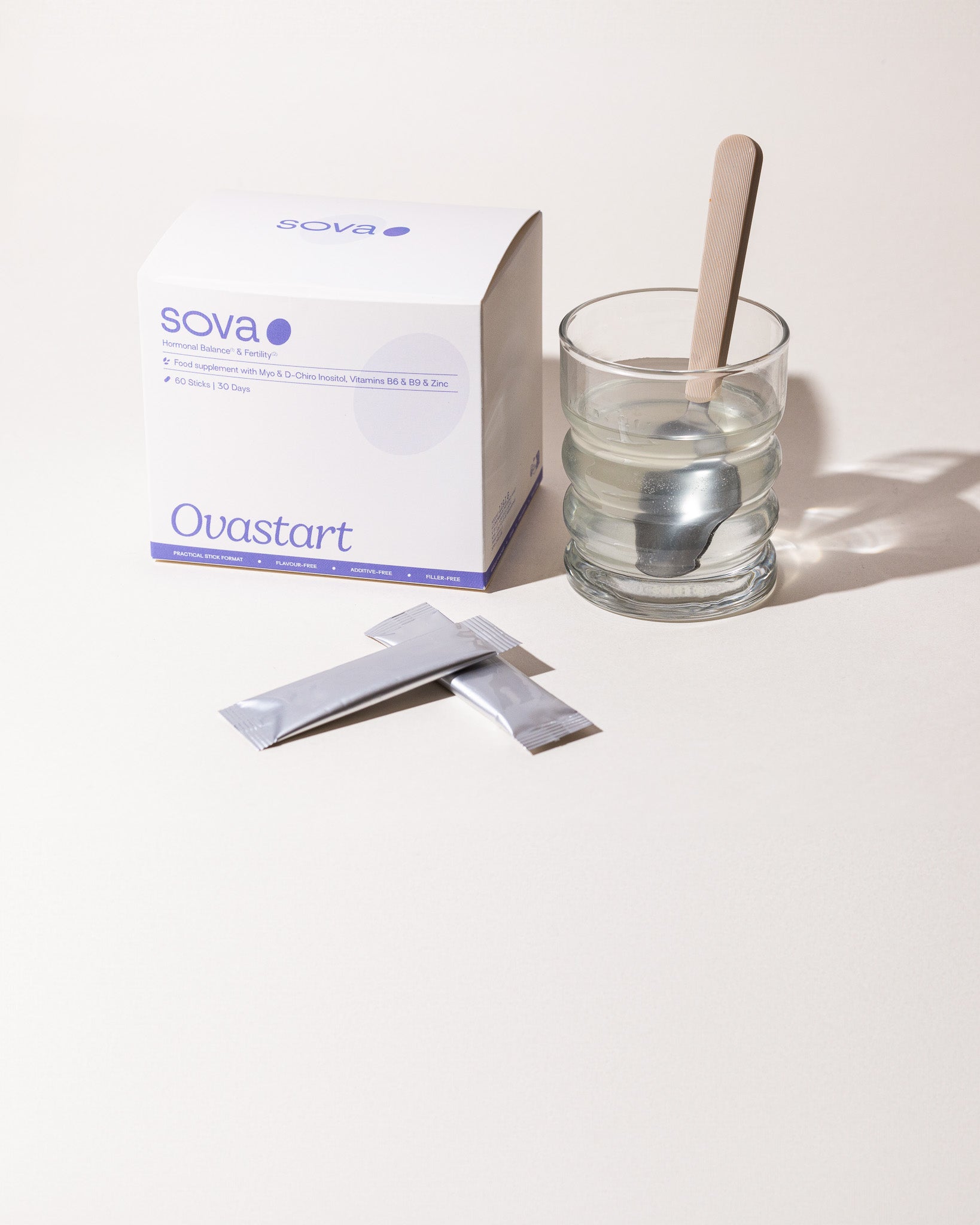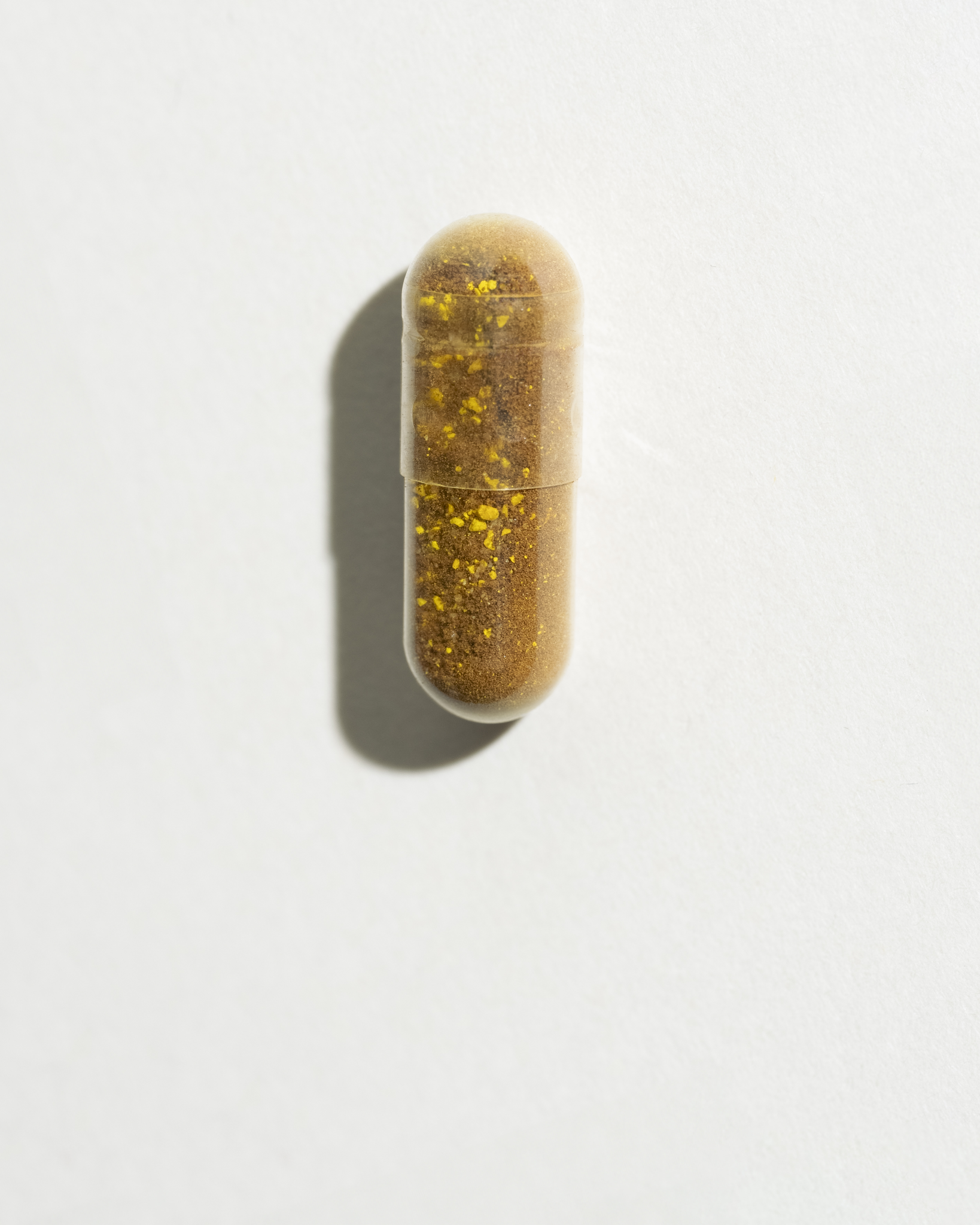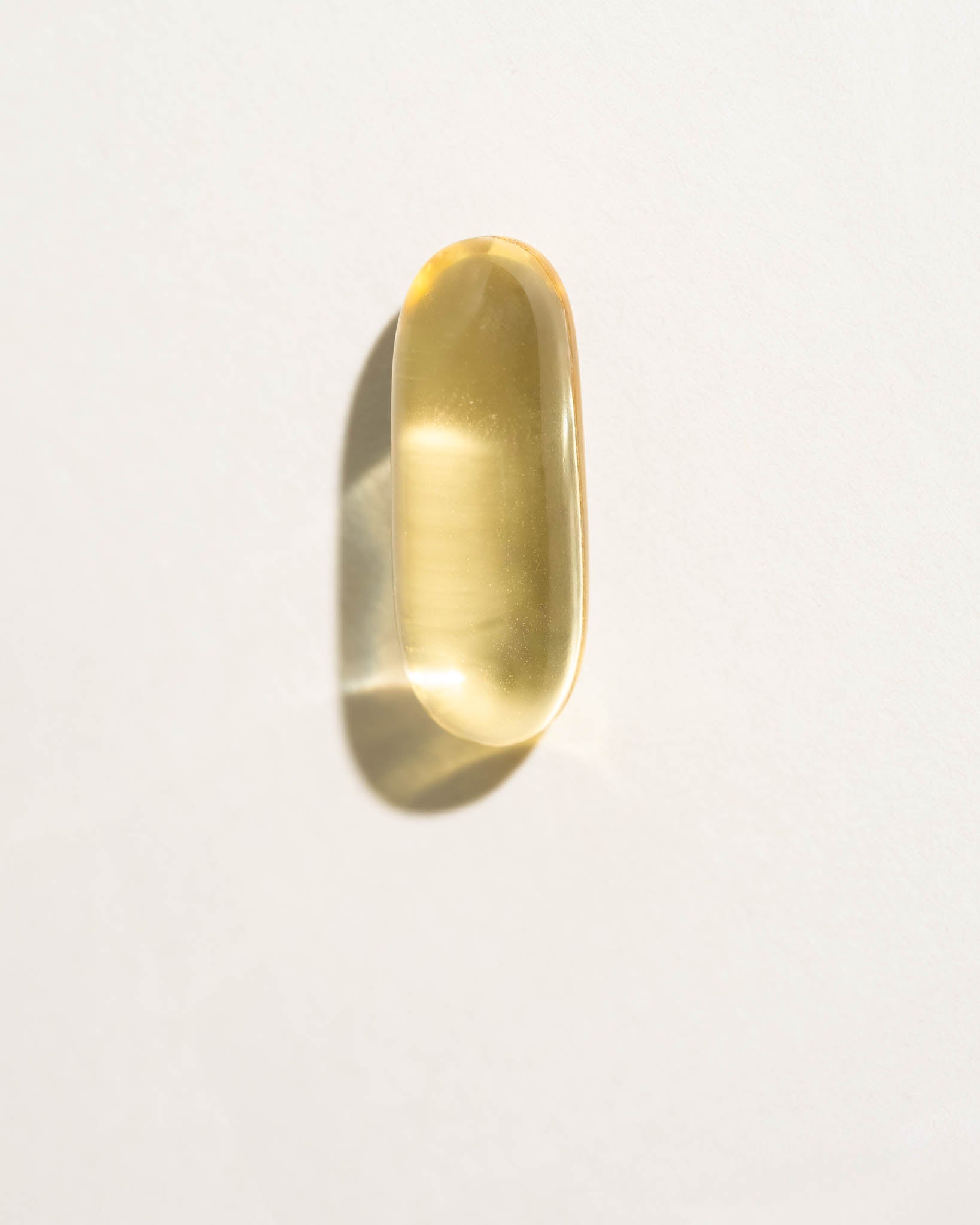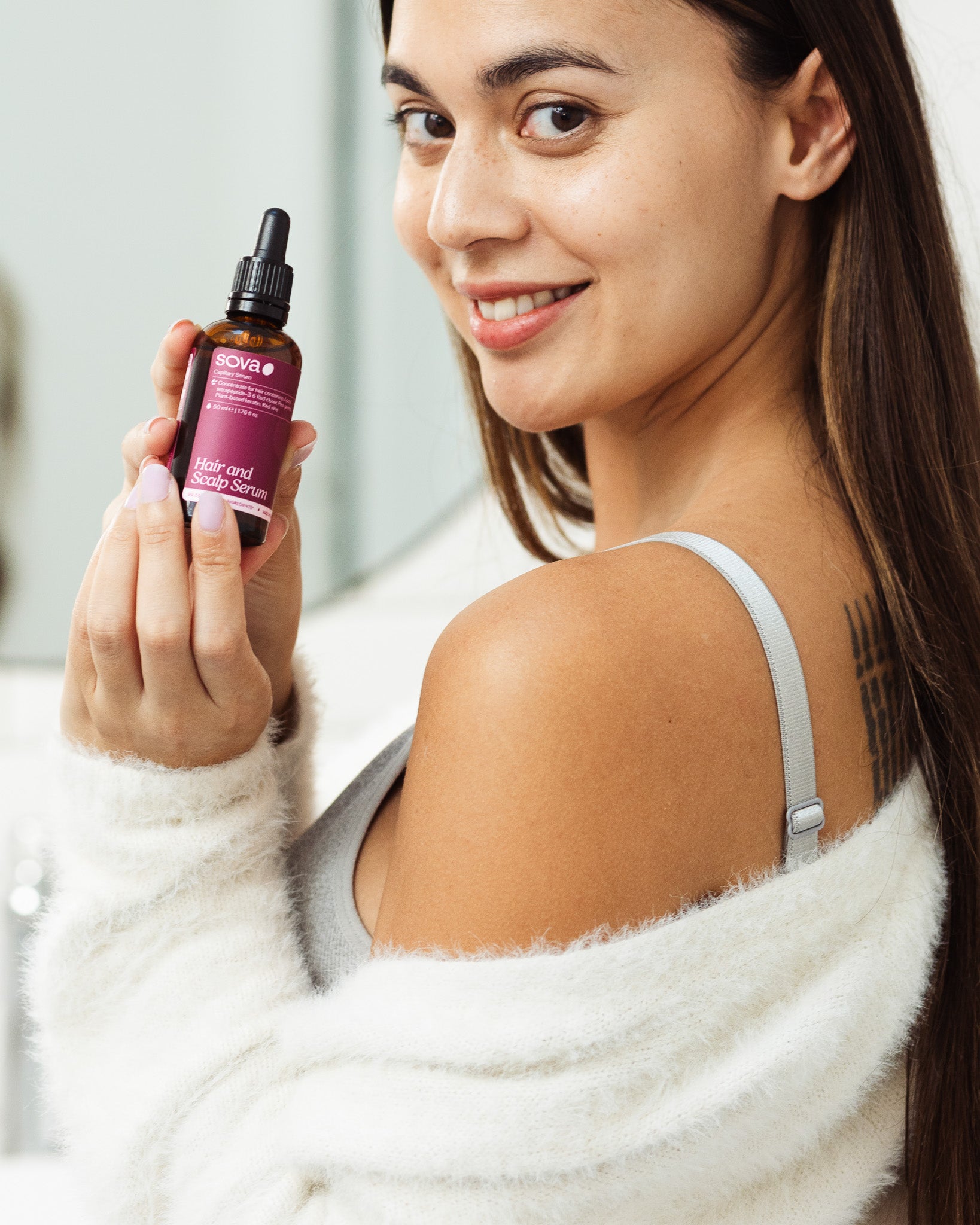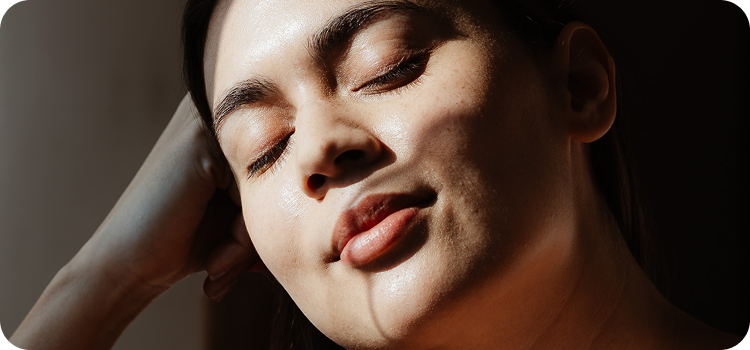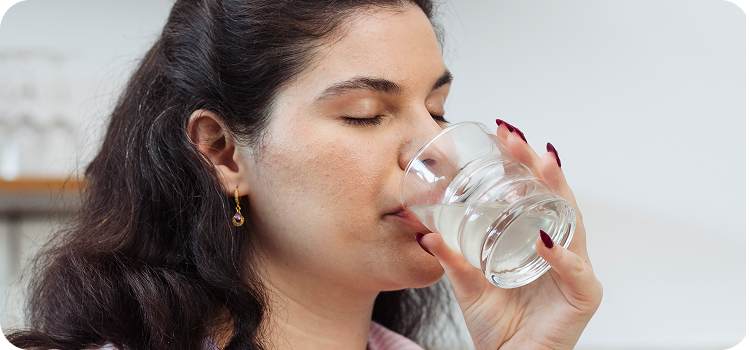Table of contents
In our previous article, we went back to basics to explain what PCOS actually is. By now, you’ll know that it’s a complex hormonal condition that can show up in lots of different ways.In this article, we’ll take a look at the most common PCOS symptoms.
If you haven’t been diagnosed yet but recognise yourself in some of these, this might be the right time to start a conversation with your doctor.
⚠️ Disclaimer: This article is not intended to provide a diagnosis. If you have doubts, always seek advice from a healthcare professional first.
Symptoms affecting the menstrual cycle
Irregular or absent periods
Infertility
Because ovulation is irregular or absent, fertility is often impacted. The fewer ovulations you have, the fewer chances there are of conceiving (under normal conditions, there’s around a 25% chance per ovulatory cycle).
If you’ve been on the pill since your first period, you might think your cycle is “regular”. But the pill only mimics a cycle. It’s usually only after stopping it that you’ll know if your natural cycles are regular or not.
Symptoms affecting metabolism
Weight gain or difficulty losing weight
Not all women with PCOS struggle with weight — but many do. It’s a vicious circle, as excess weight can also make symptoms worse.
It’s important to remember: this is not your fault. PCOS itself slows down weight loss. With the right nutrition, movement and supplements, things can improve.
✨ Support tip: Sugar Balance, our formula with berberine, cinnamon and chromium, is specifically designed to help regulate blood sugar, reduce cravings, and make weight management easier.

Sugar cravings and insulin resistance
Around 70% of women with PCOS have insulin resistance. This can show up as strong sugar cravings or constant hunger.
It’s not always linked to weight — some women with insulin resistance have a completely normal BMI.
👉 Want to know if insulin resistance might be one of your triggers? Start with our PCOS product quiz.
You can also check out our article dedicated to Insulin Resistance and PCOS.
Symptoms Impacting Your Skin or Hair
Acne
This is undoubtedly one of the symptoms that causes the most hang-ups. There are many possible causes of PCOS-related acne:
-
elevated androgens
-
insulin resistance
-
chronic inflammation in the body
-
a tired liver
-
an imbalance in your intestinal microbiota...
Not to mention the complexity of finding a beauty routine with products suitable for your skin!
Managing acne can be long and complex. To avoid getting lost in various trials and errors (dietary exclusions, new beauty routines, antibiotics, dietary supplements), seek guidance from a doctor/naturopath/dietician specialised in female hormonal imbalance: this way, you will save precious time!
✨ Support tip: By balancing hormones and improving insulin sensitivity, Ovastart and Sugar Balance can also help support clearer skin from the inside.

![]() Hirsutism
Hirsutism
It's not necessarily the most common symptom, but when present, it's one of the most challenging to manage.
Hirsutism can be very disabling for us, affected women: hair growth occurs in typically masculine areas (face, chest, back, the midline between the navel and the pubis).
Hirsutism can be managed with "mechanical" solutions (shaving, waxing, laser - part of which may be reimbursed by your healthcare service) as well as prescription medications (including some contraceptive pills).Managing your PCOS through lifestyle and dietary supplements can help you achieve good results in terms of unwanted hair growth. However, patience is key.
Hair loss
Again, it's a consequence of hyperandrogenism: hair can become soft, dull, and break more easily. PCOS can lead to "androgenic alopecia," which means hair falling out in certain typical areas (receding front hairline, on the crown/vertex of the scalp, and on the temples).If you notice abnormal hair loss, you should seek medical advice as other pathologies may be involved (including anaemia, hypothyroidism, vitamin or mineral deficiencies, acute or chronic stress, emotional shock, etc.).
Rest assured that though hair loss is often impressive, it can be reversed: once your PCOS is under control, things may gradually return to normal. Some dietary supplements and targeted treatments can also provide support.
✨ Support tip: Our Hair & Scalp Serum is formulated with pea sprout extract and nettle to help strengthen follicles and reduce hair loss linked to DHT.
Symptoms affecting mood and energy
Anxiety, mood swings, depression
Women have a cyclical nature, and hormones largely regulate mood and morale throughout the menstrual cycle.
In a context of hormonal imbalance, it is understandable that you may experience mood swings, even if it is not always easy to manage on a daily basis.
The physical changes caused by PCOS (weight gain, acne, hirsutism) can also be a source of anxiety and even a cause of depression for some of us. Weight and insulin resistance can also lead to eating disorders (ED) - according to studies, 11% of women with PCOS may be affected by ED (bulimia, anorexia, binge eating...).
These issues should be taken seriously: if you feel concerned, do not hesitate to seek help from a healthcare professional.

Chronic Fatigue
Chronic fatigue is characterised by tiredness lasting for more than 6 months, despite a decent amount of sleep (between 7 and 9 hours depending on your needs).
Often, women with PCOS affected by chronic fatigue report a feeling of exhaustion (sometimes even upon waking up), muscle pain, a lack of motivation for daily tasks, etc.
In fact, it is the very quality of sleep that is to blame: women with PCOS are more likely to suffer from insomnia, night sweats, sleep apnea, etc, all of which can lead to unrefreshing sleep and fatigue accumulation.
✨ Support tip: Omega-3 supplements can help reduce inflammation and support energy balance — especially if you’re dealing with fatigue or brain fog.
Low Libido
Of all the symptoms, it is often the least talked-about...probably because it's the most taboo. However, it is very real: women with PCOS are more affected by a lack of libido than others.There are several causes for this phenomenon: hormonal imbalance, decreased self-esteem (due to overweightness, acne, hirsutism...).When we encounter difficulties with this, it is essential for us to find methods to reclaim our femininity and regain self-confidence, including in our body. If you are in a relationship, it is crucial to communicate with your partner on this subject, sharing your feelings, desires, and blocks.
 Every women is different
Every women is different
Congratulations if you've made it this far! We’ve covered a wide range of PCOS symptoms — but every woman’s experience is unique.
- Having one or more of these symptoms does not automatically mean you have PCOS.
- You might also have PCOS without obvious symptoms — sometimes it’s only detected via ultrasound or blood tests.
If in doubt, always seek medical advice.💜 At Sova, we’re here to support you with evidence-based products, resources and community.👉 Take our PCOS quiz today to discover your personalised routine, and explore targeted support like Ovastart, Sugar Balance, Omega-3 and our Hair & Scalp Serum.
SOVA was created by two sisters with PCOS who wanted products that truly worked. Our formulas are developed in-house with women’s health and micronutrition experts, using ingredients backed by clinical studies and compliant with European regulations.
- Built by women with PCOS, we know the reality of the symptoms.
- Clinically studied, high-quality ingredients, including patented forms like Quatrefolic® and an optimal Myo-/D-Chiro Inositol ratio.
- Holistic support for hormonal balance, metabolic health, inflammation, mood and cycle regulation.
- Transparent, science-led formulas with no unnecessary additives.

